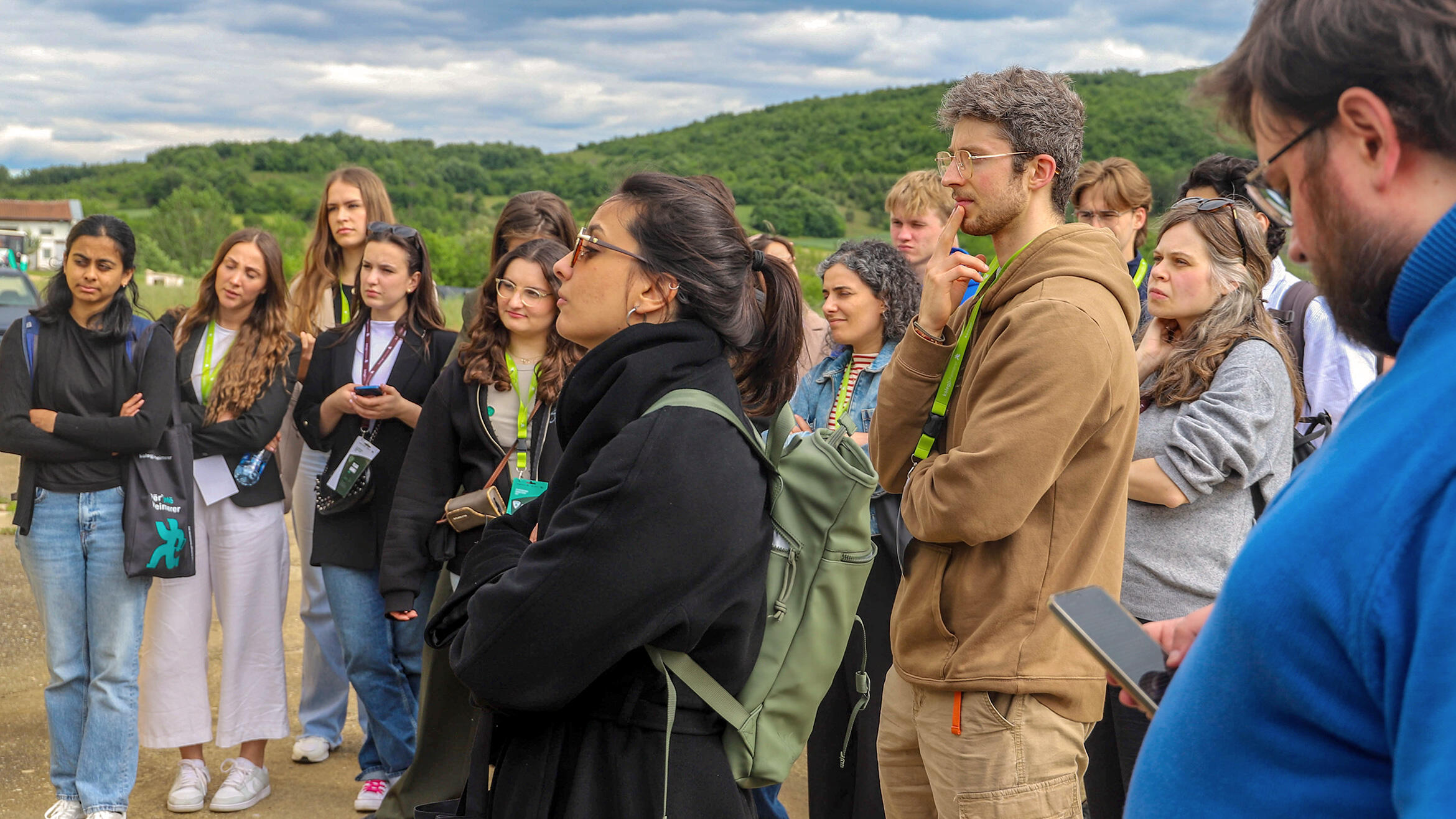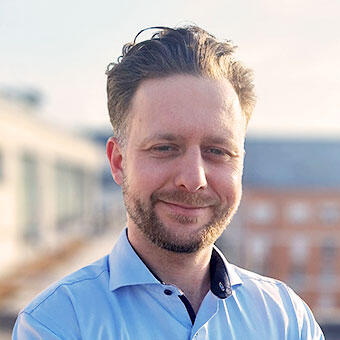Nursing Training in Kosovo
The Heimerer Group implements a German-Kosovar project in Pristina: nursing training to German standards at bachelor's degree level. This model can be transferred to other countries and will contribute to Germany's efforts to attract skilled workers.
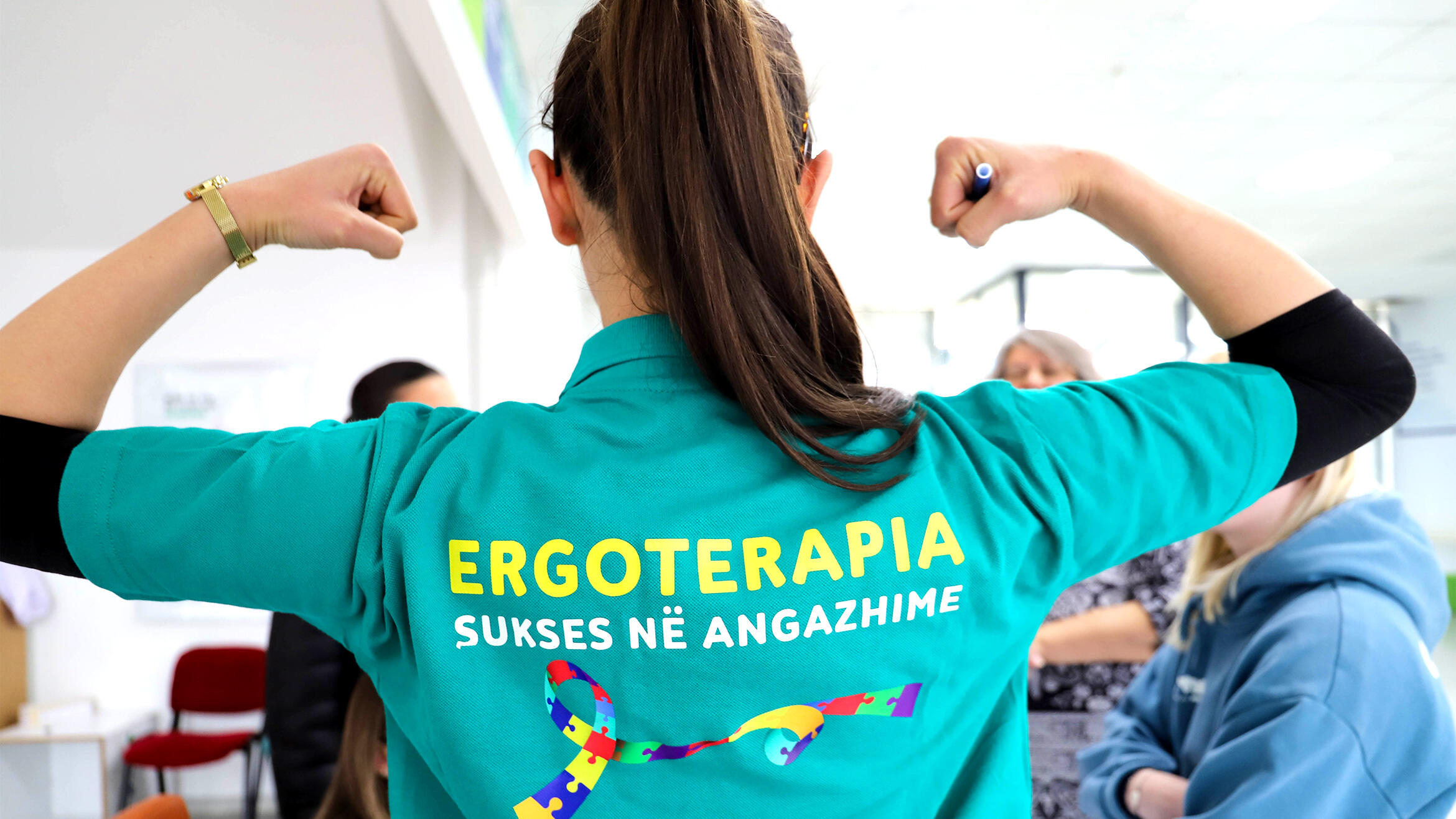
The German-Kosovar college was established in 2010 by the Heimerer Group, which has been providing training and further education for healthcare professionals since 1980.
The aim is to train qualified nursing staff for Germany – a solution that also strengthens the labour market in Kosovo. This globally developed concept can therefore serve as a blueprint for other countries looking to address the shortage of skilled nursing staff in Germany.
The college offers the following courses: nursing; nursing education; nursing management (Master's level); occupational therapy; and speech therapy.
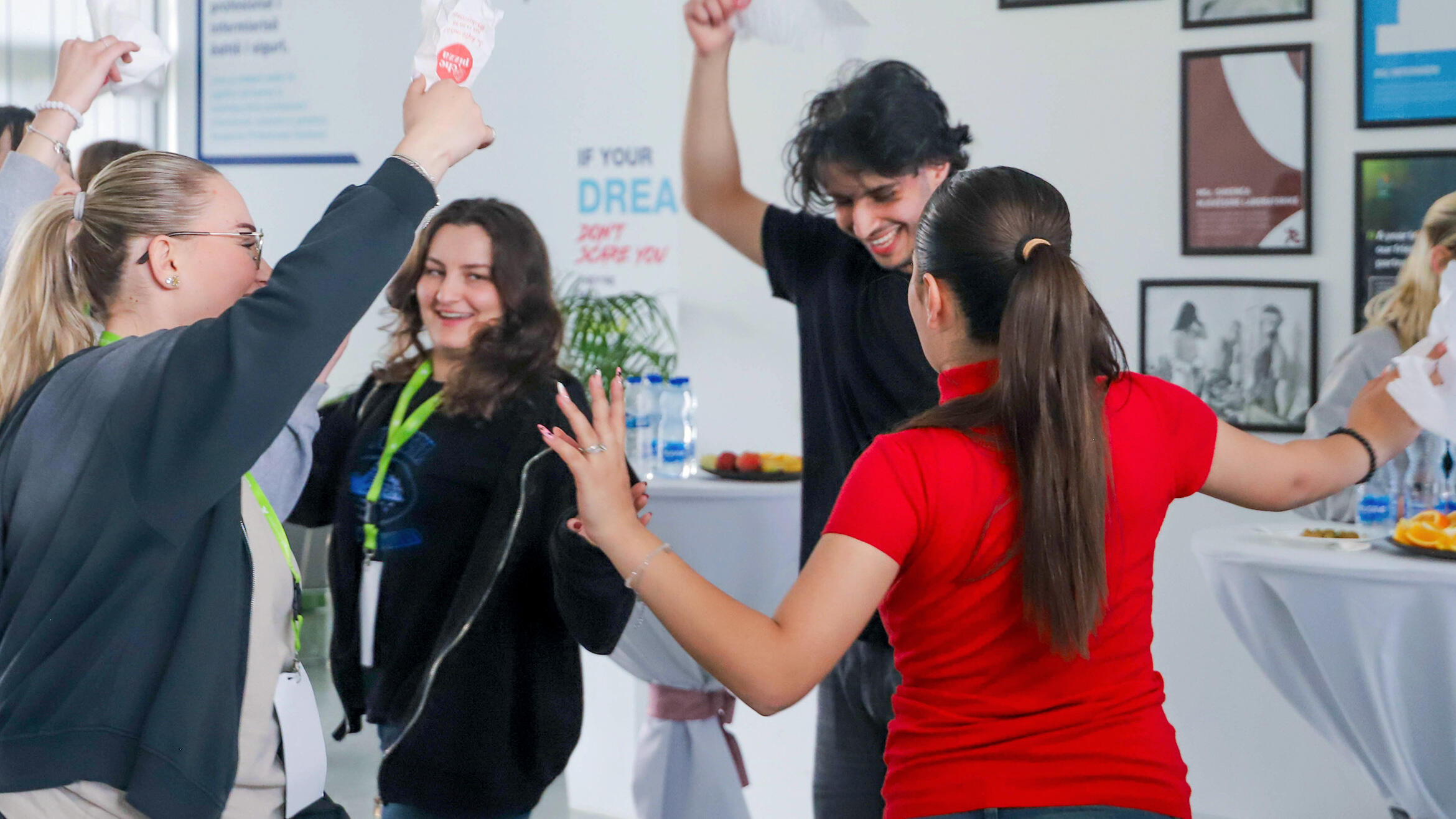
Organising the training: step by step
Getting started – the first semesters
At the beginning of their nursing studies, students learn specialist knowledge as well as the German language. For candidates who wish to work in Germany later on, there are elective modules integrated into the programme. These prepare students specifically for the requirements of the German healthcare system, for example in the areas of health documentation, legal framework and technical German.
In consultation with the German State Office for Nursing, the compulsory elective modules cover all aspects of German training that are not included in the standard programme.
Fifth semester
In the fifth semester, students must achieve language level B1.
Alongside their studies, the college organises interviews with German employers, either online or on-site in Pristina. These interviews often result in internships or even job offers.
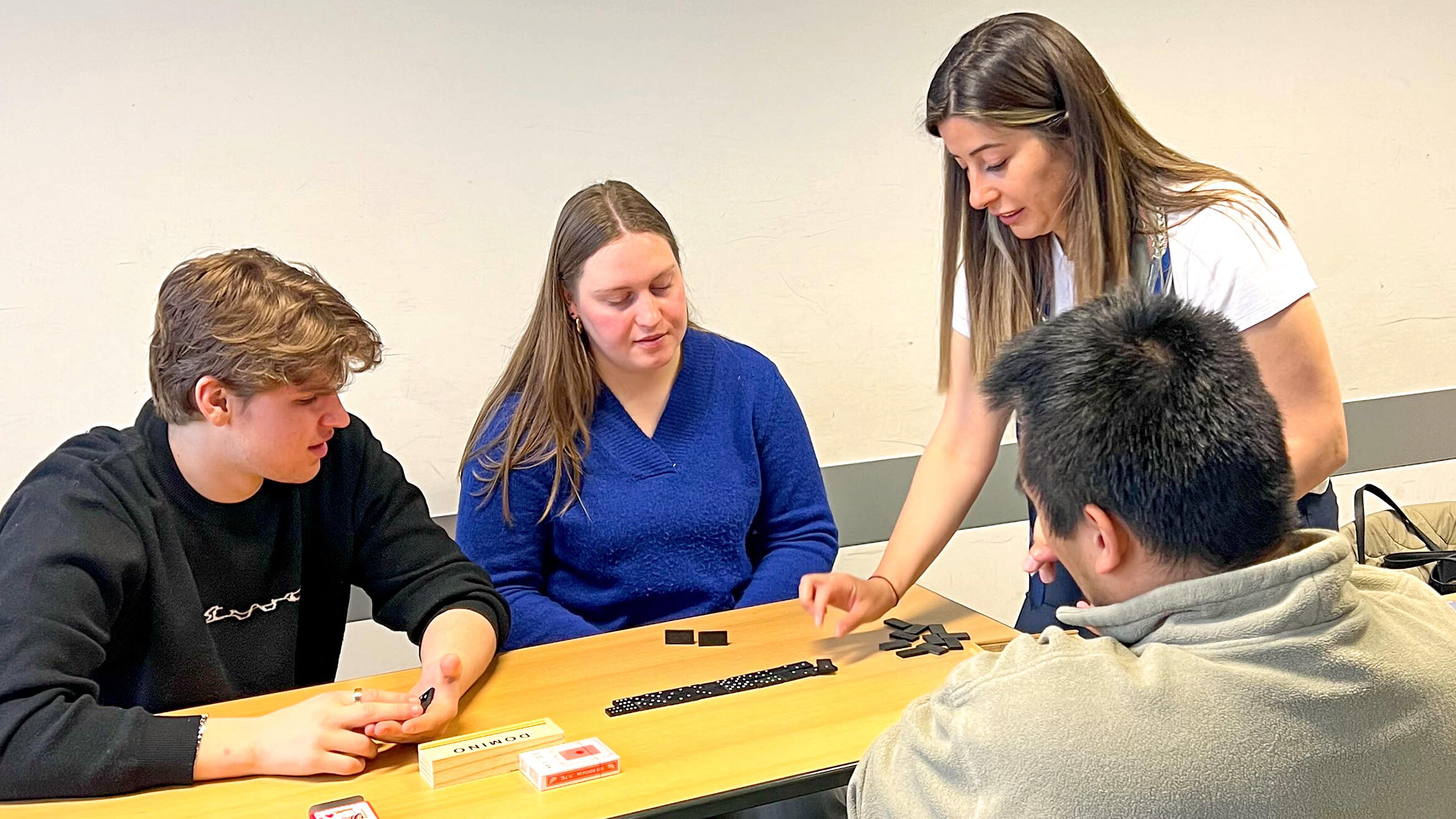
Sixth semester
This is where students complete their first subject-specific placement in Germany.
The visa procedures have been completed. In addition to the internship contract and proof of accommodation, approval has been obtained from the Federal Employment Agency.
Students must demonstrate German language skills at level B2 by the end of this semester.
Prospective nurses with a valid German employment contract must apply for professional recognition, for which they require a Kosovar work licence for their profession.
Completion: Seventh semester
The final semester consists of practical training in Kosovo only, which is required for professional registration in the home country. It is only possible to submit an application for professional recognition once this licence has been obtained.
Thanks to prior coordination with the relevant state nursing authority and completion of the elective modules, graduates should receive a recognition certificate attesting to the equivalence of their training. This certificate eliminates the need for a recognition phase involving compensatory measures in Germany, such as starting work as a nursing assistant.
With these requirements met, the skilled workers are ready to enter Germany and start working as recognised nursing professionals.
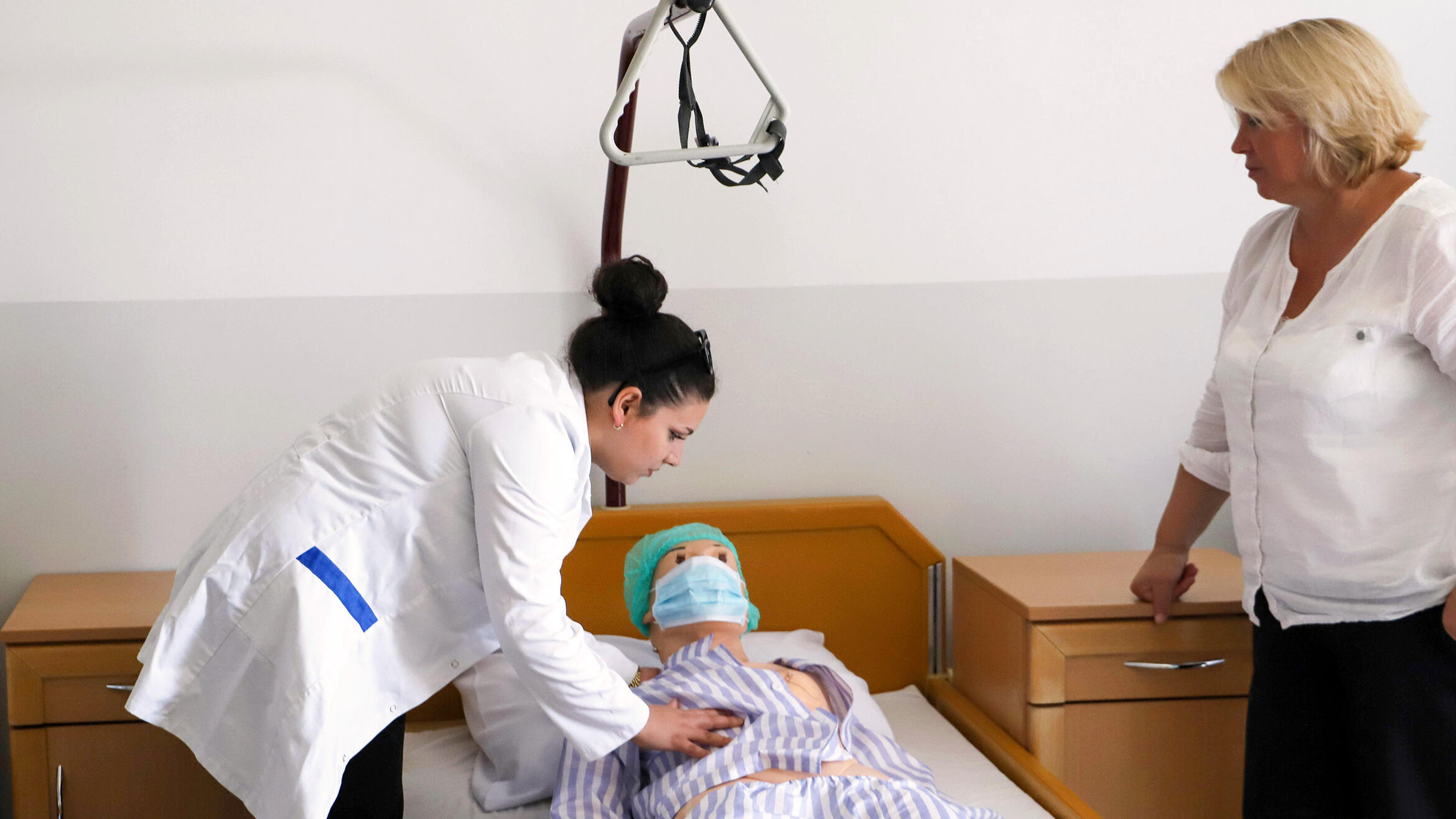
How many skilled workers want to come to Germany?
Around 200 students enrol on the nursing programme at Kolegji Heimerer in Pristina each year. This is limited by the Kosovan accreditation agency.
Each year, around 100 to 150 nursing students express an interest in working in Germany. The aim is to secure permanent employment contracts for these qualified professionals in Germany.
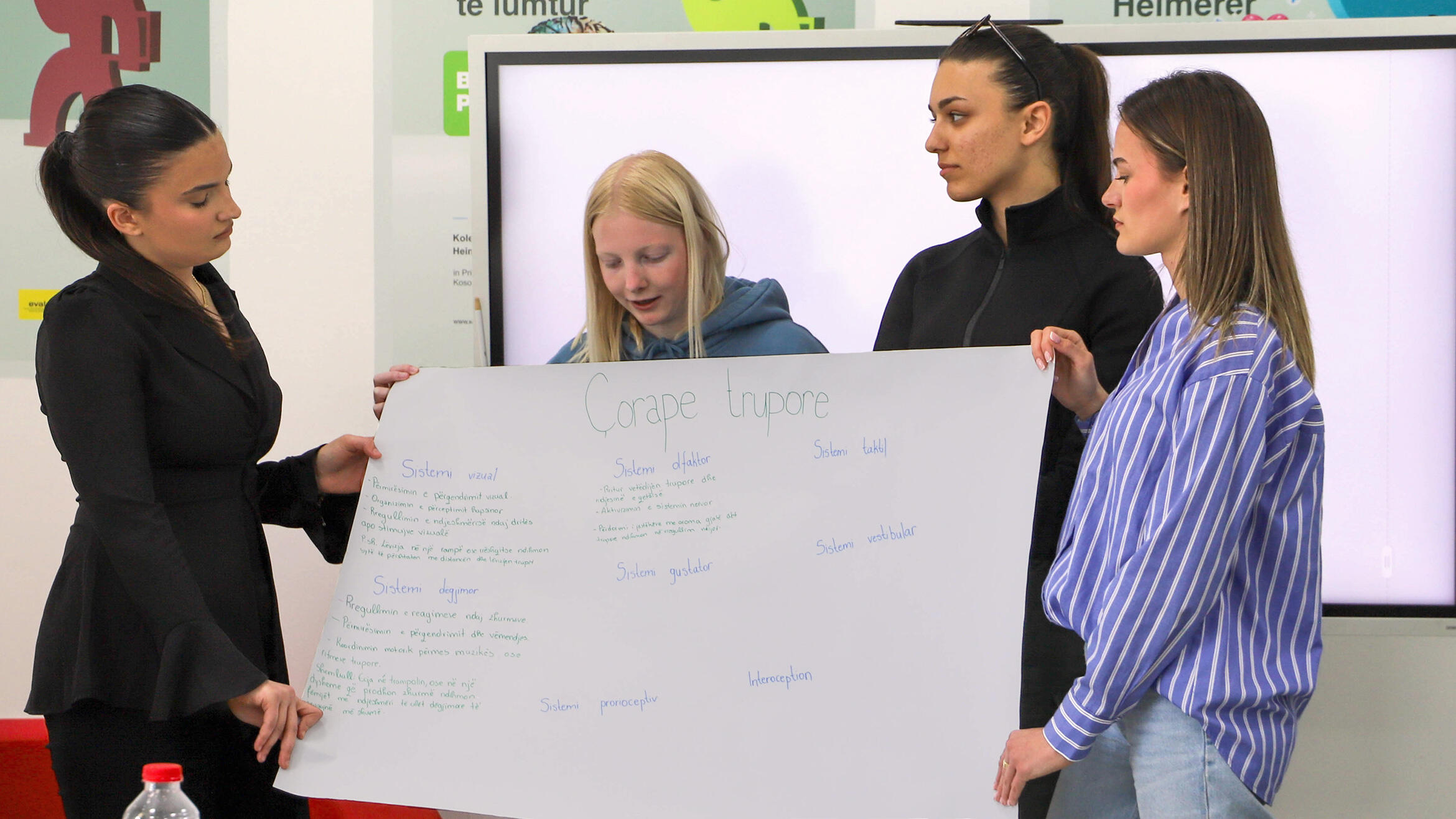
A role model
This successful training concept can also be implemented in other countries. The Heimerer Group has already made initial steps towards this in North Macedonia and Albania.
As part of a GIZ project, training standards in Albania were analysed and differences to the German system were identified. Following a three-year development phase, it will be possible to train 100–150 nursing staff annually for the German market.
With over a decade of experience, the college in Pristina is ideally positioned to function as an international or German campus. The country itself is well-suited to such a project due to its close ties with Germany.
At the German campus in Pristina, students from Kosovo and other countries, such as Turkey, India, the Philippines and Vietnam, can undertake nursing training in accordance with German standards. Existing partnerships in these countries facilitate the establishment of further contacts. Market research and delegation trips, in which iMOVE plays an active role, provide valuable support for developing and expanding these international collaborations.
In terms of recruiting skilled workers, this concept has enormous potential for Germany. Not only does it offer a sustainable solution to the shortage of skilled nursing staff, it also strengthens international cooperation in the healthcare sector.
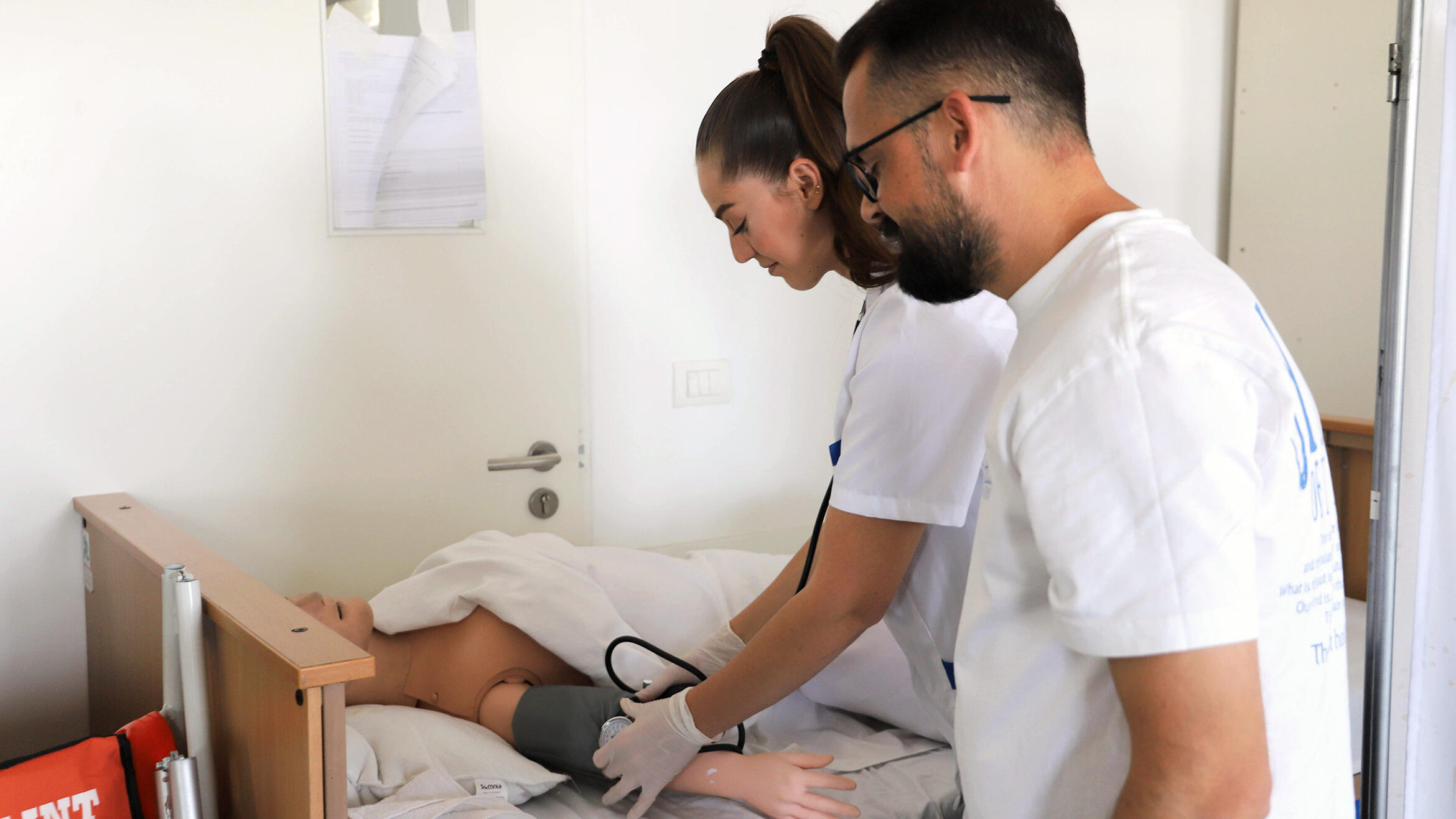
Financing nursing training
The training is funded through various channels. Some of the funding comes from EU projects that support the development and implementation of the programme. Students contribute a fee of around €9,000 for the entire 36-month programme. Employers share the costs equally so that students do not have to bear any additional financial burdens.
The above costs cover language support, additional German modules and local organisation and coordination. In addition to the visa and recognition procedures, we organise interviews, holiday work and internships integrated into the study programme.
Overall, the costs amount to around a quarter of those for a comparable training programme in Germany, offering the same quality and recognition. This innovative financing model ensures that the training is efficient, sustainable and accessible to a wide range of people.
Heimerer is currently seeking funding from the Nursing Training Fund to ensure sustainability. To this end, politicians must first recognise the need for new ways of financing nursing training. As long as quality is guaranteed, it does not matter whether a school authority provides training in Munich, Leipzig or Pristina.
